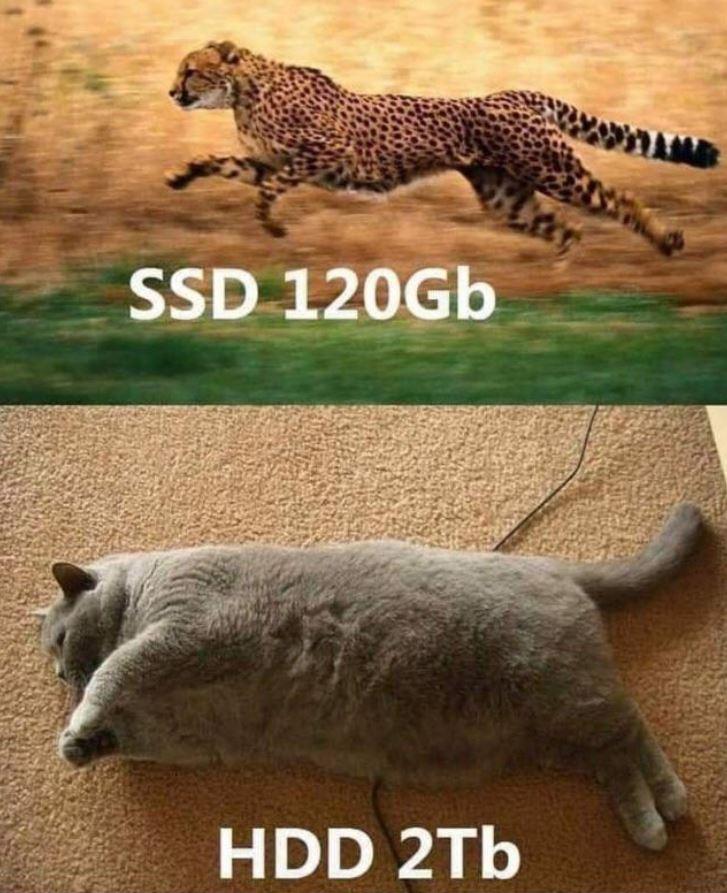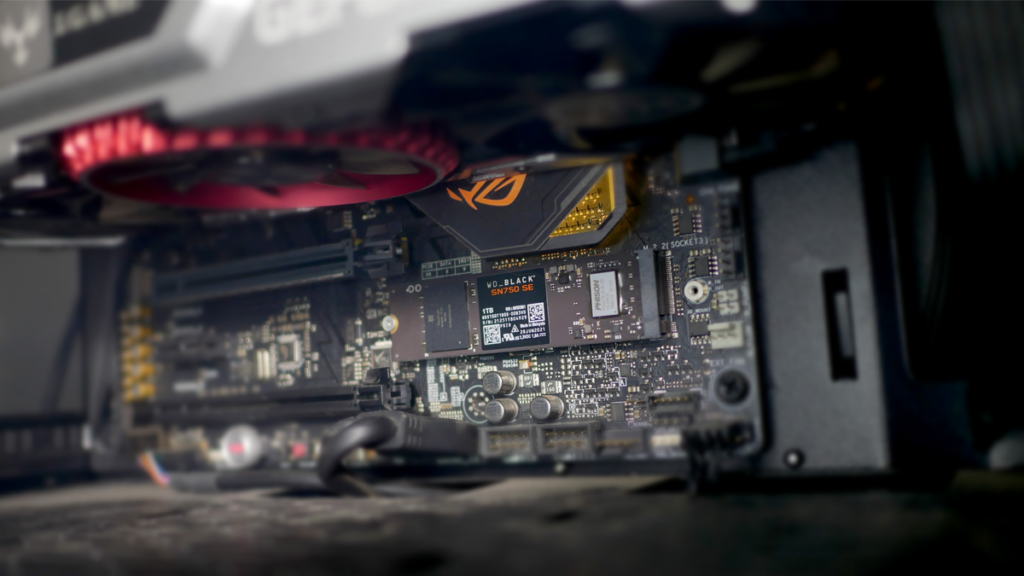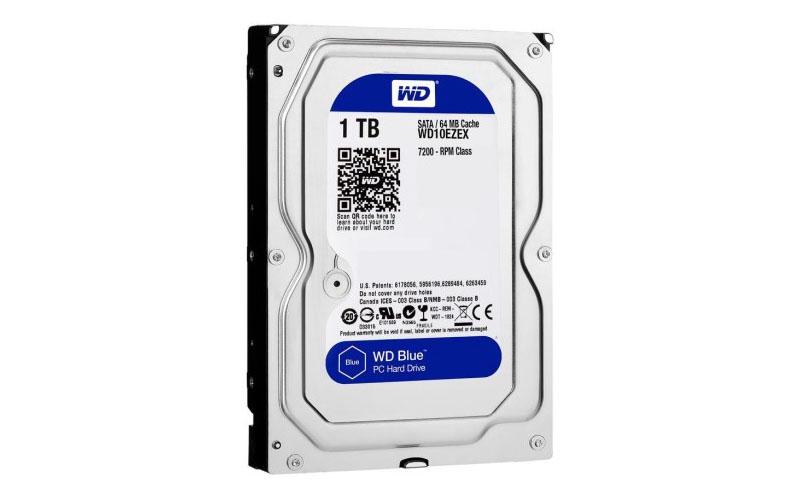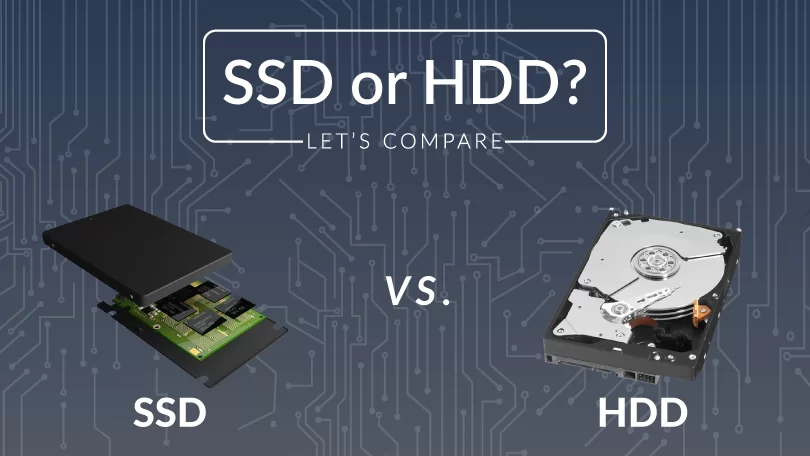The Difference Between SSD and HDD – Recently, we have observed a transition from hard disk drives (HDD) to solid-state drives (SSD) in storage. Besides the price factor, more and more people realize that faster data processing can provide greater comfort.
Especially before building a PC, the presence of an SSD will provide various benefits compared to a conventional HDD, which is becoming less relevant, especially if you are building a gaming PC.
So, through this article, we will try to discuss the differences between these two types of storage, including which one is better or ideal for gaming.
SSD vs HDD – Which is Better for Gaming?

SSD stands for solid-state drive, where this type of storage has a size that is roughly the same as a 2.5″ hard drive that you can find in a laptop or notebook. The difference is that an SSD does not have gold disks to spin data like a hard drive.
On the other hand, HDD or hard drive comes in varying sizes from 2.5″ to 3.5″, with varying speed options. Usually, the hard drive speed that is easily found in the market is between 5,400 RPM and 7,200 RPM as supported by Wiki.
The function of both types of storage is the same, which is to store various documents, data, music, games, or anything else that we can access later. So, what distinguishes SSD and HDD, and even some claim that it is superior to a hard drive?
The Standard for Building Gaming PC Nowadays
Have you ever heard the punchline “the existence of a gaming PC feels incomplete without an SSD”? There is some truth to this, my friend. In fact, its size is smaller, but it does not reduce its function as reliable storage media for the computer or laptop that we use.
In addition, the physically smaller storage is located in its speed, which can reach hundreds, thousands, or even tens of thousands of megabytes per second. Its variants also vary, there are M.2 SATA and M.2 NVMe which offer different speeds.
Of course, the existence of this storage will accelerate game loading time or any other activity massively.
SSD vs HDD – Which is Better for Gaming?
SSD stands for solid state drive, which has a size similar to a 2.5″ hard disk drive (HDD) commonly found in laptops and notebooks. The difference is that SSDs do not have gold-plated disks to rotate data like HDDs.
HDDs, on the other hand, come in various sizes ranging from 2.5″ to 3.5″ with varying speed options. Typically, the speed of HDDs that can be easily found in the market is between 5,400 RPM and 7,200 RPM, as supported by Wiki.
The function of both types of storage is the same, which is to store various documents, data, music, games, or anything else for later access. So what sets SSDs apart from HDDs, and why are some claiming that SSDs are superior?
A Guide for Building a Gaming PC Nowadays
Have you ever heard the punchline “a gaming PC’s existence is not complete without an SSD”? There is some truth to this, as its size may be smaller, but it does not detract from its function as reliable storage media for the computer or laptop that we use.
Furthermore, the physically smaller storage capacity compared to conventional storage lies in its speed, which can reach hundreds, thousands, or even tens of thousands of megabytes per second. There are various variants available, such as M.2 SATA and M.2 NVMe, which offer different speeds.
Of course, the existence of this storage will significantly speed up game loading time or any other activity.
More Durable Against Shock
Another advantage of this small, fast storage medium is that it is more shock-resistant. As we mentioned earlier, this storage medium does not have any moving parts, unlike conventional HDDs.
This tiny storage sells speed and stability and is not as “needy” as conventional HDDs, whose speed is still mediocre.
So, you don’t need to worry too much if this small storage accidentally falls to the ground.
How to Differentiate between Cheap and Expensive SSDs

Apart from the various advantages that it offers, not all modern storage will offer the same quality. Therefore, you must know how to differentiate between cheap and expensive SSDs to avoid regretting your purchase.
Common Differences between Expensive and Cheap SSDs
Generally, you can differentiate between expensive and cheap SSDs quite easily. Among the differences are as follows:
- Consistency of data transfer speed
- Quality of materials used
- Size or amount of cache for data processing
- Overall performance
Therefore, we recommend that you consult with the store where you plan to buy the SSD or ask for recommendations for which storage has the right price-to-performance ratio, as economic conditions when buying cannot be forced.
In addition to the name and ease of claiming the warranty, more expensive storage usually provides after-sales service to ensure that the component you purchase is a product that has passed strict quality checks.
So, Is HDD No Longer Relevant?

The answer is of course, hard disk drives (HDD) are no longer relevant because even operating systems prefer faster storage.
In a home setting that doesn’t demand too much, of course, this doesn’t need to be debated as it is suitable for its intended use.
But it would be a different story if we entrusted an HDD for demanding activities such as content creation or gaming. The difference in time to access or process data would be massive, to the point that it could save a lot of time if we calculate it overall.
Some of you may not mind this, or even care, as long as the computer turns on. However, wouldn’t it be very annoying if you were working on something but were slowed down by slow processes or applications?
This includes when you update Windows, whether you want to or not, which will make disk usage on your computer constantly at 100% if you only use a conventional hard disk drive.
SSD and HDD Differences, Conclusion?
Actually, this discussion will never end because there will always be those who need hard disks just to store data or other files that amount to hundreds of gigabytes, making a hard disk drive the cheapest solution they can choose.
On the other hand, SSDs, although now becoming very affordable (imagine 128GB for only a hundred thousand), still have the benchmark of “you get what you pay for”, unless the brand gives you a minimum warranty of three to five years to justify the meaning of the product you purchased.

